SUMMARY
This is AI generated summarization, which may have errors. For context, always refer to the full article.

MANILA, Philippines – With pressure from President Ferdinand Marcos Jr., the Senate may pass the Maharlika Investment Fund (MIF) bill after the Holy Week break, according to Senate President Juan Miguel “Migz” Zubiri.
“Alam mo naman kapag hiningi po ng Pangulo iyan, hindi naman maganda na i-snub natin po ‘yung Pangulo (When the President asks for something, it wouldn’t be nice to snub him). We cannot snub him,” Zubiri said in a radio interview with DWIZ on Saturday, January 21. “Maganda naman ang kaniyang adhikain (He is aspiring for something good).”
Introduced only in late November, the Maharlika fund proposal steamrolled past Congress on December 15, 2022, after Marcos certified it as urgent. The upper chamber is expected to begin discussions on the controversial sovereign wealth fund now that Senator Mark Villar has filed a counterpart bill, which has been described as similar to the House-approved version.
Asked about the progress of the proposal, Zubiri said it might clear the Senate committee on banks before the Senate adjourns for the Holy Week break on March 23. The committee on banks, financial institutions, and currencies is also chaired by Villar.
“Sa tingin ko mga (I think) after Holy Week break for third and final approval, and then of course [there will be] discussions on bicameral conference committees,” Zubiri added. Congress adjourns from March 25 to May 7.
Zubiri said Villar would do well in leading discussions on the proposal, given that he has been joining Marcos’ frequent international trips.
“Kasama naman niya palagi si Presidente kapag umikot sa abroad, sa mga presidential trips and visits, at pinag-uusapan nila ang Maharlika fund, so I think he is well-adapted and he is well-versed on the need [for] the Maharlika fund. At gusto namin siyang tanungin kung ano ba ang plano niya dito sa wealth fund na ito,” he said.
(He’s always with the President as they make the rounds abroad on these presidential trips and visits, and they discuss the Maharlika fund, so I think he is well-adapted, and he is well-versed on the need for the Maharlika fund. And we want to ask him what his plans are for this wealth fund.)
The Senate President also urged Villar to call a committee hearing at “the soonest possible time.”
Private investors welcome
Zubiri clarified that the version of the bill approved by the House may still undergo several amendments as it makes its way through the Senate. Among these are the proposed changes worked out by Albay 2nd District Representative Joey Salceda ahead of the President’s “soft launch” of the Maharlika fund in Davos.
If the Senate were to consider these amendments, the Maharlika fund may become more private-led, with a key source of funding coming from an initial public offering (IPO) through the local stock market. Salceda estimated that this could “easily raise” as much as P1.2 trillion and make the government own less than 50% of the fund.
Zubiri said the Senate would consider the option to allow an IPO for the investment fund. He said using private capital could grow the fund at less risk for government financial institutions, which were originally tapped to provide the fund’s seed capital.
Allowing private investors part of the fund may also give markets a chance to question and analyze the decisions of the Maharlika Investment Corporation, according to Enrico Villanueva, a senior lecturer of economics at the University of the Philippines Los Baños. In addition, having the Maharlika Investment Corporation listed on the stock exchange would also compel it to submit regular disclosures and audited financial statements – just like other public companies.
“It would be similar to how publicly listed corporations are answerable not only to shareholders, but also to regulators and the public at large. Same regulatory and reporting standards should apply,” Villanueva told Rappler on Monday, January 23.
Taking dividends indirectly hits budget
However, Zubiri raised concerns about Salceda’s proposal to source initial funds from the dividends of government-owned and -controlled corporations (GOCCs). Salceda had previously given assurances that since these were dividends, they were, by nature, “real surpluses.” But Zubiri clarified that redirecting dividends to the fund would still mean taking them away from the national budget.
“If you get the dividends of GOCCs, remember hindi na po idedeposit sa National Treasury iyan. Ibig sabihin hindi na maipapasama iyan sa income ng gobyerno ‘pag pinag-uusapan natin ang panukalang General Appropriations Act (they won’t be deposited into the National Treasury anymore. That means we won’t include them in the government’s income when we discuss the General Appropriations Act),” Zubiri said.
Those sentiments were echoed by Senate ways and means committee chairman Senator Sherwin Gatchalian, who said the loss of dividends from the National Treasury would indirectly affect available funding for projects.
“Kung kukunin sa GOCC ay hindi na ‘yan mapupunta sa general fund. Kapag hindi napunta sa general funding o sa GAA, sa general appropriations, hindi na natin magagastos ‘yan sa pagpapagawa ng eskuwelahan, pagpapagawa ng kalsada, pagbibili ng medisina,” he said in a DZBB radio interview on Sunday, January 22.
(If you take them from the GOCC, they will no longer go to the general fund. When they don’t go to the general funding or the GAA, or general appropriations, we can’t use them to fund the construction of schools and roads, to buy medicine.)
From a legal perspective, the dividends from government corporations are also not considered surpluses by themselves, cautioned retired Supreme Court associate justice Antonio Carpio, since they are meant to be added to the government’s total revenue.
“Based on the One Fund Concept as written in several laws, the dividends of GOCCs are not surpluses since the dividends are consolidated with all other government revenues to arrive at the total government revenues for the fiscal year, against which will be deducted all the authorized government expenditures under the GAA. The net amount will either be the surplus or deficit,” Carpio told Rappler on Saturday.
Safeguards needed
With hearings on the MIF set to start in the Senate soon, Zubiri said they will be focusing on adding enough safeguards to prevent corruption and preserve the original development purpose of the fund.
“Importante lang lagyan natin ng safeguards para hindi maging prone to corruption…. And ang importante dito ay ang puno’t dulo nitong panukalang ito ay mapalago o mapaganda niya ang ekonomiya ng ating bansa through development programs,” he said.
(It’s important that we put enough safeguards so that it doesn’t become prone to corruption. And what’s important here is that the end goal will be to enhance our country’s economy through development programs.)
Villanueva also agreed that good governance is needed for the fund to succeed. A step toward that would be ensuring the integrity of the fund’s board of directors.
“Unfortunately, we differ from either the Singapore model or even the Indonesian model in terms of the board structure. Here, we have a very politicized board, a 15-man board, 10 of which are within the ambit of influence of the secretary of finance,” he said in an interview on ANC’s Headstart on Monday.
“It’s 10 out of 15. It’s very political in nature – either government officials or appointees in government institutions,” he added.
Besides this, Villanueva observed a general lack of public trust in government, with many thinking that politicians can get away with plunder. Stopping corruption from rocking the proposed Maharlika fund should be a shared responsibility.
“Yes, it requires a cultural shift, and that starts with all of us – individually and collectively demanding accountability,” he told Rappler.
“There will be political will if people can recognize and harness their power and pressure politicians. This is what we are doing now in this MIF. We are actively shifting the conversation for the better.” – Rappler.com
Add a comment
How does this make you feel?
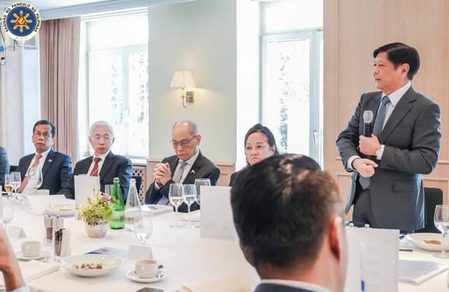
![[ANALYSIS] Maharlika fund: When politics trumps economics](https://www.rappler.com/tachyon/2023/01/tl-maharlika-politics-economics.jpg?fit=449%2C449)
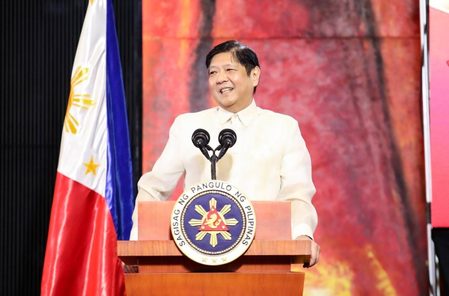
![[Just Saying] SONA 2024: Some disturbing points](https://www.rappler.com/tachyon/2024/07/TL-marcos-sona-points-july-23-2024.jpg?resize=257%2C257&crop=335px%2C0px%2C720px%2C720px)

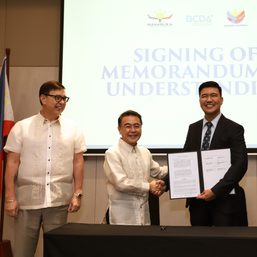

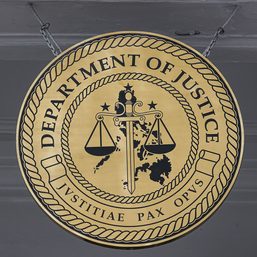
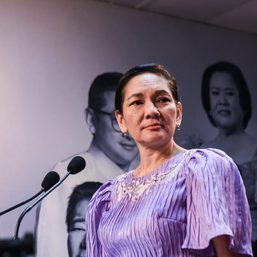

![[OPINION] Pusong mamon or pusong bato? Bato dela Rosa and the politician as ham actor](https://www.rappler.com/tachyon/2024/05/pusong-mamon-pusong-bato-may-24-2024.jpg?resize=257%2C257&crop=361px%2C0px%2C1080px%2C1080px)


There are no comments yet. Add your comment to start the conversation.